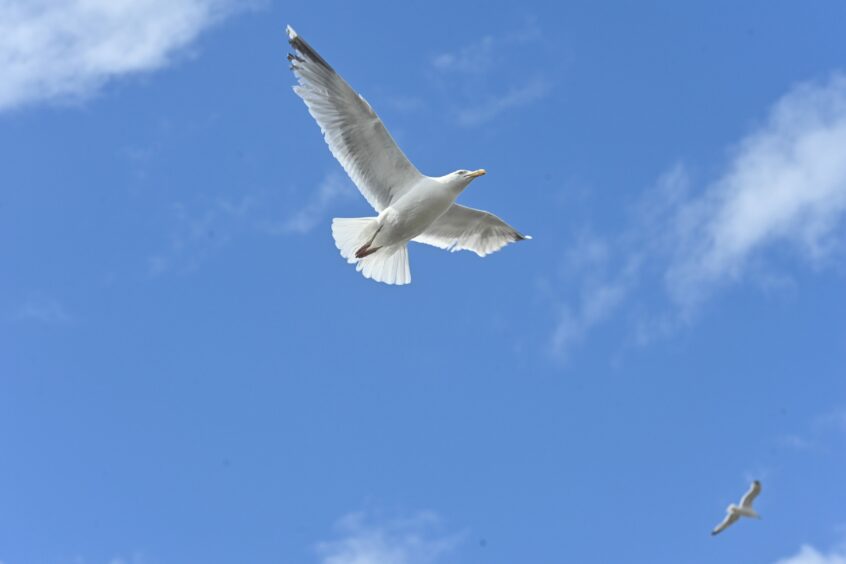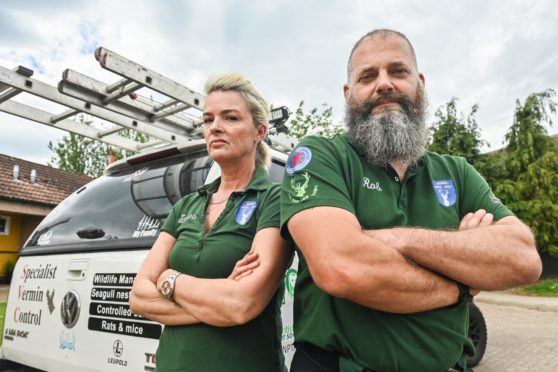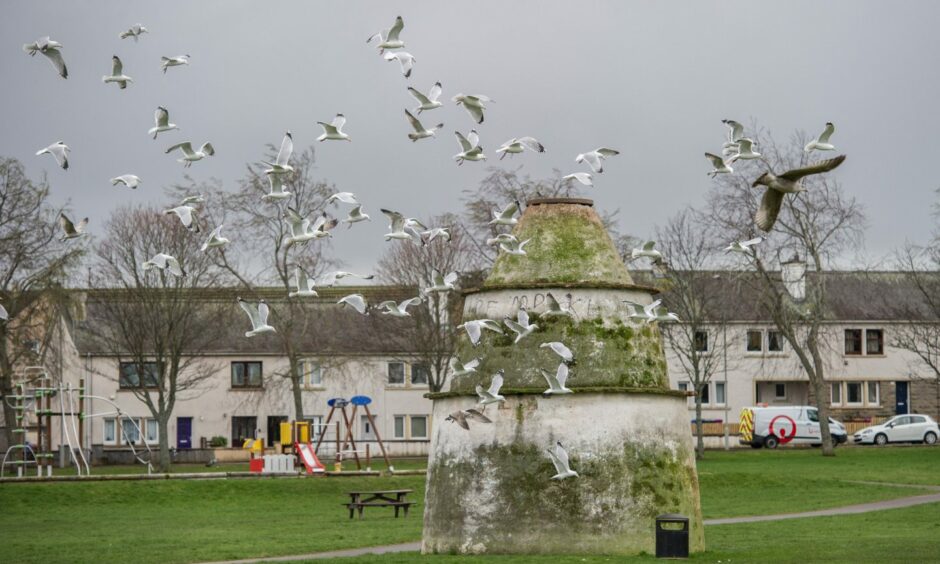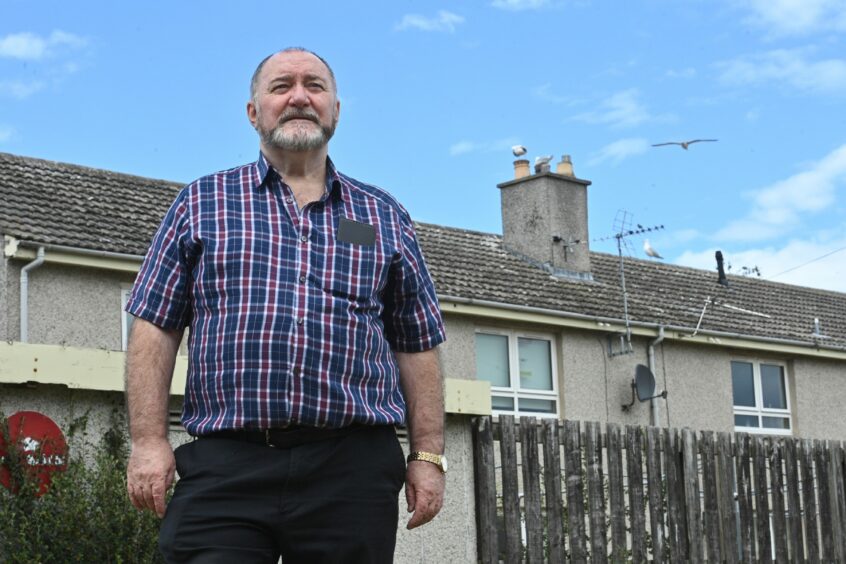Pest controllers are concerned that greater protection for herring gulls is stopping them dealing with problem birds.
Emma and Rob Teasdale of Specialist Vermin Control say the rules for removing eggs and nests are too strict.
A licence can only be applied for once a nest had been built.
And it can take up to four weeks for NatureScot to process it.
Urban gull problems
However the gestation period for herring gulls is three weeks – and once the chicks have hatch they cannot legally be removed.
The situation has left their clients frustrated and reduced some to tears.
And one elderly woman who was swooped by a gull nesting on her roof fell and broke her leg.
The rules also result in people removing nests from their own property illegally.
Rob said: “NatureScot keep saying this is not a health and safety issue.
“But we had an elderly client with a broken back, she was swooped by a seagull and she fell and broke her leg.
“And because of NatureScot’s rules, folk are just doing it themselves.
“I’ve had two or three people recently saying they’ll get some guy to do it or do it themselves.
Decline in gull species
“This is actually making it harder for everyone and it should be making it easier.”
Emma believes the number of gulls in towns has increased since restrictions were tightened.
She said: “These are urban gulls and they have no place in these areas.
“I think the number has grown threefold since we were stopped from shooting them three years ago.
“It’s getting to the stage where people are crying and sobbing, and we have an elderly lady who can’t get out of the house.
“If it was a dog terrorising children and elderly ladies it would be put down.
“Most pest controllers are animal lovers. But if the animals are not in the right place they have to be culled.
“How can a person be less important than a bird’s life?”
Elgin Common Good Fund, administered by the six town councillors, has spent £27,000 this year on sonar devices and other measures to try and address the problem.
How do you get a gull licence?
Elgin South councillor John Divers said: “You can’t apply for a licence until the nest is down.
“Then they lay their eggs and the chicks hatch in 21 days. But it can take 28 days to to process the licence, so what’s the point?
“The council has spent thousands of pounds trying to tackle this problem.
“It feels as if we’ve had our hands tied behind our backs.”

A spokesperson for NatureScot said license applications where health and safety was an issue were dealt with first.
They added: “In the case mentioned, we spoke to the woman concerned and issued the licence within a day of the application being made.
“We have since been in contact with the woman, and she was very grateful for the assistance.
“We are committed to providing a responsive licensing service and will prioritise cases with the most significant impacts, particularly those related to human health and safety.
Responsive licensing service
“We know that gulls protecting their chicks can be frightening.
“Processing can take up to 28 days, and we treat health and safety applications as a priority, but in most instances it does not take this long and we try to keep processing times as short as possible.
“We strive to ensure that everyone, regardless of access or ability, is entitled to apply and – if appropriate – receive a licence.
Why are gulls protected?
“We know that gulls can sometimes cause disturbance and frustration for people living in our towns and cities.
“But the ongoing declines in gull species in Scotland … is very concerning, so it’s vital we get the balance right between conservation and protection of species and safeguarding people from health and safety risk.”



Conversation